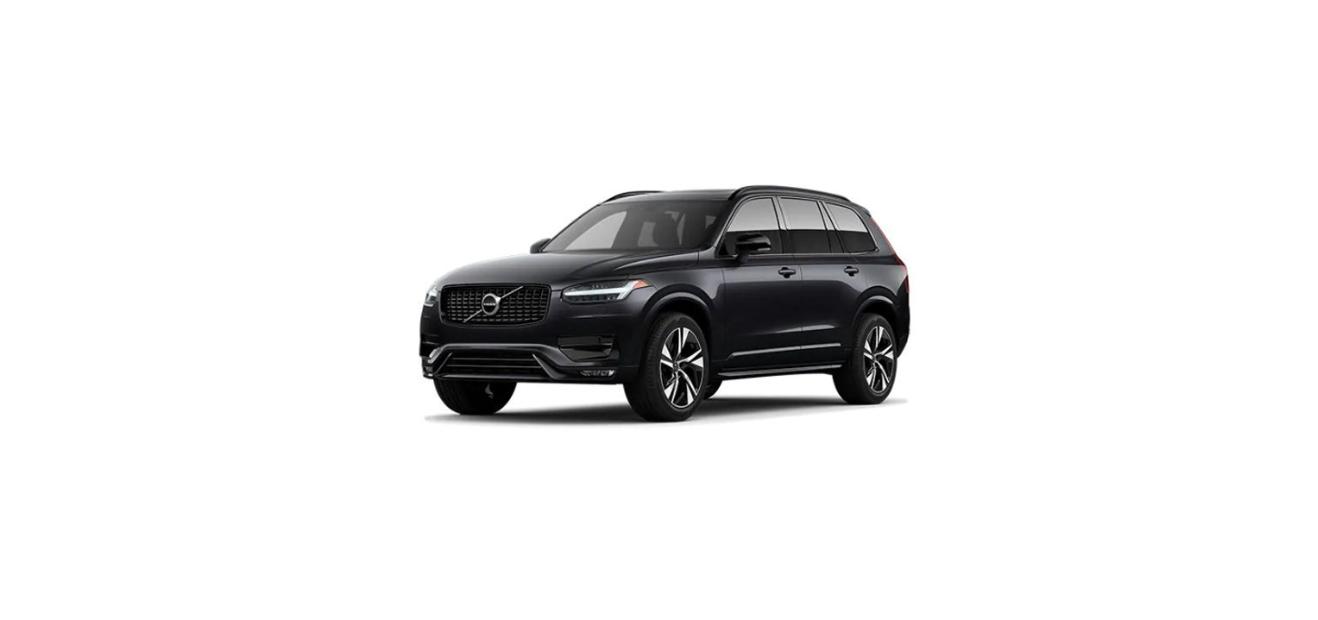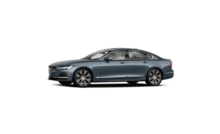- Lift the handle that is located under the seat.
- Slide the seat forward or backward to the desired position.
- Release the handle and slide the seat until the catch engages.
Check that the seat is locked after the position has been adjusted.
- Adjust the seat and fix it before driving away. Take care when adjusting the seat. Uncontrolled or careless adjustment can lead to trapping injuries.
- When loading long objects, they must always be strapped in securely to avoid injury and damage during sudden braking.
- Always switch off the car and apply the parking brake when loading and unloading the car.
- For cars with automatic gearbox, set the gear selector in P to prevent it from being moved by mistake.
- Lift the handle that is located under the seat.
- Slide the seat forward or backward to the desired position.
- Release the handle and slide the seat until the catch engages.
Check that the seat is locked after the position has been adjusted.
Getting in/out of the third seat row
The illustration is generic. To lower the backrest:
- Pull upward/forward on the handle located at the top of the outer seats in the second seat row.
- Fold the backrest forward and slide the whole seat forward.
To raise the seat to the upright position: Slide the seat backwards until it reaches the stop. The backrest must fall easily back into the correct position.
If the backrest in the centre seat row cannot be locked on its return after entry/exit, it may need to be moved forward again and reset.
Check that the backrests and head restraints in the rear seat are locked properly after being folded up. The head restraints of the outer seats must always be raised when there are passengers on any of the rear seats. The backrests for the second row of seats must always be in upright position when fitting child restraint systems in the third seat row. Take care when getting into and leaving the third seat row so that the seat in the second row of seats does not get trapped or affect the installed child restraint system in some other way.
Adjusting the head restraints in the second seat row
Adjust the centre seat head restraint according to passenger height. Fold the head restraints for the outer seats in order to improve visibility backwards.
The centre seat’s head restraint must be adjusted according to the passenger’s height so that, if possible, the whole of the back of the head is covered. Slide it up manually as required.
To lower the head restraint, the button (located in the centre between the backrest and head restraint, see illustration) must be pressed in while the head restraint is pressed down carefully.
The centre seat head restraint must be in its lowest position when the centre seat is not used. When the centre seat is used, the head restraint must be correctly adjusted to the height of the passenger so that it covers the whole of the back of the head if possible.
The outer head restraints can be retracted via the centre display’s function view. You can lower the head restraints in ignition position 0.
Press the Headrest Fold button to activate/deactivate lowering. Move the head restraint back manually until a click is heard.
Do not lower the outer head restraints if there are passengers in any of the outer rear seats.
The head restraint must be in locked position after being folded up.
The head restraints on the outer seats in the second seat row must always be raised when the third seat row is occupied by passengers.
Lowering backrests in the second seat row
- Adjust the seat and fix it before driving away. Take care when adjusting the seat. Uncontrolled or careless adjustment can lead to trapping injuries.
- When loading long objects, they must always be strapped in securely to avoid injury and damage during sudden braking.
- Always switch off the engine and apply the parking brake when loading and unloading the car.
- For cars with automatic gearbox, set the gear selector in P to prevent it from being moved by mistake.
There must be no objects on the rear seat when the backrest is to be folded down. The seat belts must not be connected either. Otherwise there is a risk of damaging the rear seat upholstery.
The seat cushion on the integrated child seat must be in lowered position before lowering the centre seat backrest. The armrest for the centre seat must be raised before lowering the seat.
The front seats may need to be pushed forwards, and/or the backrests adjusted upwards, in order that the rear backrests can be fully folded forward. The rear seats may also need to be moved backwards. The seats must be in raised position when the second seat row is lowered, they should not be lowered when they are tilted forward for entry/exit to/from the third seat row.
To lower the backrest:
- Lower the head restraint manually.
- Pull the strap located on the centre seat’s right-hand side.
- Lower the backrest forward until it locks into position. The seat cushion folds down/forward when the backrest is lowered in order to create a flat surface.
To raise the backrest to the upright position:
- Pull the strap.
- Raise the backrest and release the strap. Slide the backrest until the catch engages.
- If necessary, raise the head restraint.
To lower the backrest:
- Pull the handle on the side of the seat upwards and hold the handle in the raised position while lowering the backrest.
- Make sure that the backrest with head restraint does not come into contact with the front seat when lowered. Lower the backrest forward until it locks into position.
- The seat cushion folds down/forward when the backrest is lowered in order to create a flat surface. The head restraint lowers automatically when the rear seat is lowered.
Make sure the backrests are properly locked after they are lowered.
To raise the backrest to the upright position:
- Pull the handle on the side of the seat upwards and hold the handle in the raised position while raising the backrest.
- Make sure that the backrest with head restraint does not come into contact with the front seat when raised. Raise the backrest and release the handle.
- Push the backrest until the lock engages.
- Raise the head restraint manually.
Adjusting the backrest inclination in the second seat row
Backrest inclination can be adjusted individually for each seat in the second seat row.
- Pull the strap located on the centre seat’s right-hand side.
- Adjust the backrest inclination forward/backward by reducing/increasing the load against the backrest.
- Release the strap to lock the backrest position and slide the backrest until the catch engages.
Check that the seat is locked after the position has been adjusted.
- Pull the handle on the side of the seat upwards.
- Adjust the backrest inclination forward/backward by reducing/increasing the load against the backrest.
- Release the handle to lock the backrest position and slide the backrest until the catch engages.
Check that the seat is locked after the position has been adjusted.
- Adjust the seat and fix it before driving away. Take care when adjusting the seat. Uncontrolled or careless adjustment can lead to trapping injuries.
- When loading long objects, they must always be strapped in securely to avoid injury and damage during sudden braking.
- Always switch off the car and apply the parking brake when loading and unloading the car.
- For cars with automatic gearbox, set the gear selector in P to prevent it from being moved by mistake.
Lowering backrests in the third seat row
To be able to lower the third seat row backrests, it may be necessary to change the position and angle of the seats in the second seat row.
- Pull upward/forward on the handle that is located on the top of the backrest.
- Make sure that the backrest with head restraint does not come into contact with the seat in front when lowered. Fold the backrest forward.
- The seat cushion folds down/forward when the backrest is lowered in order to create a flat surface. The head restraint lowers automatically when the rear seat is lowered.
To raise the seat, raise the backrest manually until it locks. The head restraint is raised manually.
Check that the backrests and head restraints in the rear seat are locked properly after being folded up. The head restraints of the outer seats must always be raised when there are passengers on any of the rear seats.




